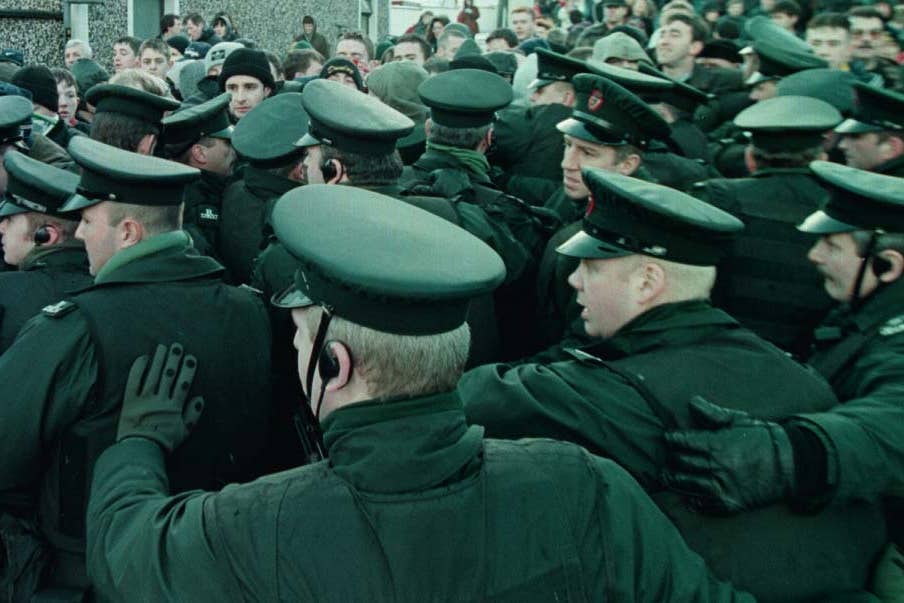Papers reveal bid to attract more women to RUC by focusing on shopping centres
Newly declassified papers also show attempts were made to recruit more Catholics into the force

Your support helps us to tell the story
From reproductive rights to climate change to Big Tech, The Independent is on the ground when the story is developing. Whether it's investigating the financials of Elon Musk's pro-Trump PAC or producing our latest documentary, 'The A Word', which shines a light on the American women fighting for reproductive rights, we know how important it is to parse out the facts from the messaging.
At such a critical moment in US history, we need reporters on the ground. Your donation allows us to keep sending journalists to speak to both sides of the story.
The Independent is trusted by Americans across the entire political spectrum. And unlike many other quality news outlets, we choose not to lock Americans out of our reporting and analysis with paywalls. We believe quality journalism should be available to everyone, paid for by those who can afford it.
Your support makes all the difference.Steps were taken to boost the number of women in the RUC in 1998 with recruitment officers focusing attention on shopping centres, newly declassified files reveal.
The state papers show that efforts were also made to recruit more Catholics into the police force by advertising in newspapers with a higher nationalist readership.
In 2001 the RUC transitioned into the PSNI following reforms suggested in the Independent Commission on Policing in Northern Ireland, chaired by Lord Patten.
A 50-50 recruitment policy ran for the first decade of the new force, meaning one Catholic recruit for every one person from a Protestant or other background.
The papers from the Public Record Office in Belfast show that concerns were raised about low representation of Catholics and women in policing in Northern Ireland during the final years of the RUC.
At the time the Northern Ireland Affairs Committee was carrying out an inquiry into fair employment, and a number of papers on the subject were prepared.
A fax from George Cleland, of the NIO Police Division, in May 1999 was titled “Composition of and Recruitment to the RUC”.
It stated: “The RUC has redoubled its efforts to encourage applications from all sides of the community in Northern Ireland and takes considerable care to reach out to the minority in particular.
“While the ceasefires continue to hold the confidence needed by members of the minority to apply for membership of the RUC continues to grow.”
The paper said that latest statistics had shown there had been a “considerable upturn” in applications from the minority community and females.
It said: “An advertising campaign took place during December 1998 and specifically targeted the two main under-represented groups, Roman Catholics and women.
To reach more women, a number of shopping centres were given more attention by Recruiting Branch
“To get better coverage in the Roman Catholic community, the RUC’s Recruiting Branch advertised in an additional seven newspapers which research had shown were read mainly by this section of the community.
“To reach more women, a number of shopping centres were given more attention by Recruiting Branch.
“As a result of that very positive action the number of applications received from the Roman Catholic community rose to 22%.
“The number of applications from women rose to 36%.
“The number of applications from Roman Catholic women rose by 73%.”
The paper continued: “Statistical analyses indicates that over 9,000 officers from Reserve Constables to Inspectors and almost 300 senior officers have received training on sectarian and sexual harassment.”
A separate paper detailed efforts to encourage more women and Catholics to apply for senior positions in the Northern Ireland Civil Service (NICS).
It said the NICS had removed seniority as an eligibility requirement for internal promotion and an increased number of promotion opportunities had been filled by way of trawl and open to all staff in all grades on an NICS-wide basis.